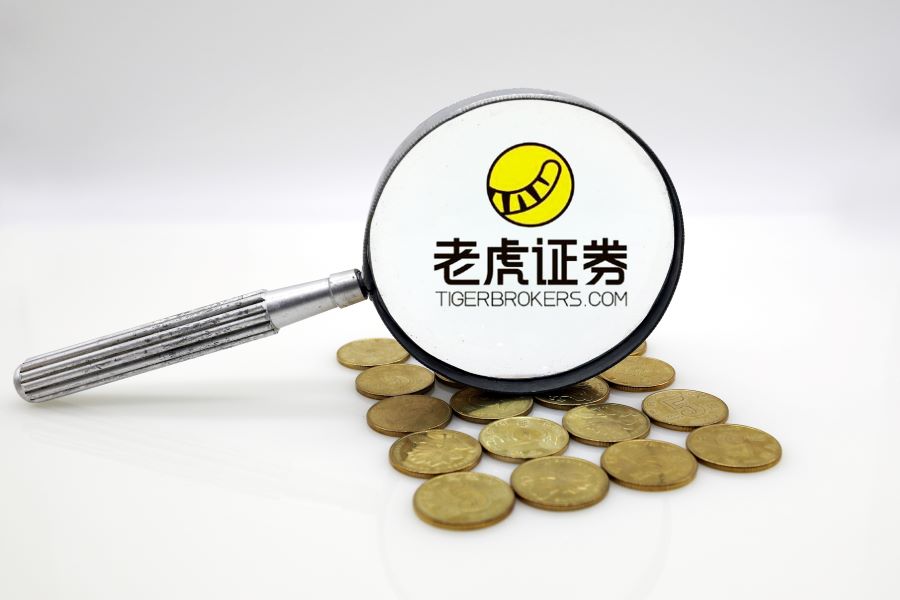Tiger Brokers-Backed SPAC Makes Stealthy Trading Debut

TradeUP Acquisition Corp. raised $40 million as the second ‘blank check company’ sponsored by China’s No. 2 broker for Chinese investing in U.S. and Hong Kong stocks
Key points:
- The ‘blank check company’ sponsored by Tiger Brokers made a quiet trading debut last week after raising $40 million
- The SPAC is part of the company’s fast-growing investment banking services for Chinese companies listing overseas
By Doug Young
Following a strong start to the year, Chinese IPOs in New York have ground to a sudden halt as companies figure out their next step after a regulatory crackdown from Beijing. Despite that pause, a stealthy “tiger” quietly slipped through the cracks to make its trading debut last week.
Some might consider last Thursday’s debut by TradeUP Acquisition Corp. (UPTDU.US) a bold move considering the current regulatory turbulence in China. But this company is really just a shell, or more precisely a special purpose acquisition company (SPAC), often called a “blank check company,” owned by Tiger Brokers, the online broker that helps Chinese buy overseas-listed stocks and is listed in New York as UP Fintech Holding Ltd. (TGR. US).
While any New York IPO by a Chinese company these days could be considered risky, this particular one should be less so since it’s just an empty shell right now, albeit one containing $40 million in cash. This particular SPAC is just the second for Tiger, which is testing out the model as a new revenue source for its fast-growing investment banking business.
Under the SPAC model, companies like Tiger set up these empty shells and then sell shares via a traditional IPO process. Investors buy the shares based on their belief that the shell will ultimately get inhabited by a good company with strong growth potential, in what’s typically known as a reverse merger process.
Of course, the big risk is that Tiger might not be able to find any high-quality companies to inhabit that shell, and be forced to settle for a “B-grade” company that isn’t quite so attractive. That possibility has probably become stronger following the regulatory clampdown that has seen some of China’s most promising companies temporarily shelve their own New York IPOs until Beijing regulators determine such listings wouldn’t pose a national security risk.
The list of companies that filed prospectuses for New York listings over the last two months, only to suspend them following the recent regulatory clampdown, includes education services provider Spark Education, high-tech interior design specialist Manycore and maid and nanny supplier Daojia. Most spectacularly, the clampdown also led to the 11th-hour pulling of an IPO two weeks ago by LinkDoc, an oncology-focused information provider that was set to raise more than $200 million.
So now, the big question for Tiger becomes what kind of company, if any, will be bold enough to sign up for a backdoor IPO using the newly listed TradeUP Acquisition Corp.? Before we answer that, we’ll quickly review the process behind this SPAC’s formation and what may lie ahead.
Tiger first announced its plan back in early May, which included the pricing of TradeUP’s “units” at $10 apiece. Each unit consisted of one ordinary share, plus the right to buy another half share based on an equivalent price of $11.50 per share. It ultimately raised $40 million through the share sale, and trading of the shares began last Thursday.
Low-Key Debut
The stock has been quite subdued since its debut, which isn’t a huge surprise since this is really just a shell containing $40 million. The shares have traded in a tight band between $9.91 and $9.97 since that time, just below the IPO price. Trading volume was high on the first day at nearly 1 million shares, but since has dropped to a thin daily level of about 50,000 this week.
The company gave some vague references to potential target companies to fill the shell, including “technology, health care, education, semiconductor, and digital health” as potential industries it was looking at in its prospectus filed on Monday. The only other noteworthy point is that Tiger has given itself 18 months to complete the offering, which seems like plenty of time for this kind of modest deal for a smaller, lower-profile company.
A company representative also pointed out that timeline could be extended, if necessary.
From Tiger’s perspective, this kind of offering is just a piece of its bigger expansion as it looks for new products and services to offer its customers that include both Chinese investing in overseas stocks and Chinese companies listing on overseas markets. Its two main focuses now are the U.S. and Hong Kong, though it announced a new deal last month that paves the way for it to offer trading in Singapore stocks as well.
The company has been doing some of its own fundraising lately too, raising about $160 million last month in a secondary offering following its 2019 IPO. Anyone who bought shares in the latest offering is probably licking their wounds, as the stock now trades at $18, down about a quarter from the secondary offering price of $24.50 per ADS.
People who bought into the original IPO at the $8 listing price are still doing relatively well, since their shares are more than double that price now. But like many U.S.- and Hong Kong-listed Chinese shares lately, the stock has been quite volatile and was actually as high as $35 as recently as February.
In terms of fundamentals Tiger is quite solid. Its revenue more than tripled year-on-year in its latest reporting quarter to $81.3 million, as it reported a profit of $21.1 million versus a loss in the year-ago quarter. The company’s investment banking services, which includes the TradeUP SPAC, is included as “other revenue,” which more than quadrupled to $10.5 million in the latest reporting quarter.
At its current stock price UP Fintech now trades at a relatively high price-to-earnings (PE) multiple of 68, though that drops to 48 based on forecasts for its 2021 profit. Its larger crosstown rival Futu trades at a similar multiple of 62, also dropping to 41 based on 2021 forecasts. Those figures are all quite a bit higher than more mature global peers like Interactive Brokers and Charles Schwab, which trade at multiples of 26 and 28, respectively.
To subscribe to Bamboo Works free weekly newsletter, click here






